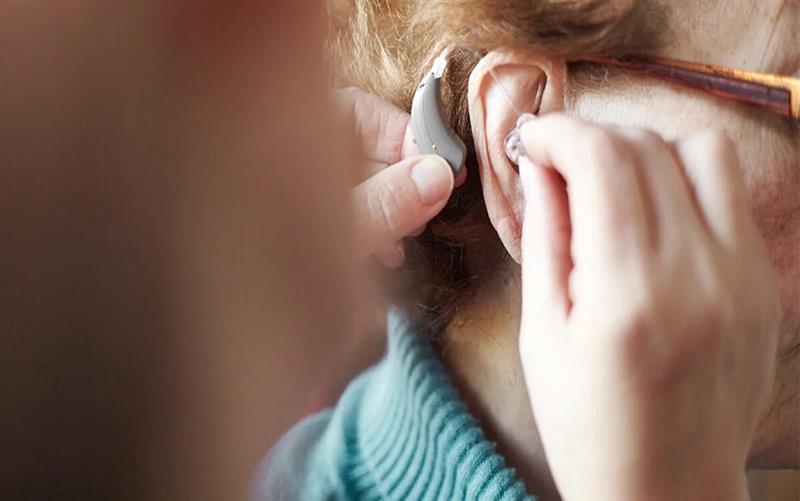
Traveling to new places can be an exciting and enriching experience, but for individuals with hearing aids, it may also bring some unique challenges. However, with proper preparation and a few helpful tips, you can enjoy your travels to the fullest without any worries. In this blog, we'll explore some practical suggestions to ensure a smooth and enjoyable journey while traveling with hearing aids.
Hearing aids should be one of the first items on your packing list when it's time for a trip because they are made to be a significant part of our daily lives. It's crucial to keep a few tips in mind when traveling with your hearing aids to make sure they are always in top operating condition and you never miss a thing, whether you are going for business or pleasure.
What to Bring
When traveling abroad, you should pack a few things, including:
For your hearing aid, extra batteries. Get a new blister pack or use a battery caddy. You're allowed to keep them in your carry-on luggage by law.
1. Power is essential :
It is make sure you have the right power source with you when you travel with hearing aids! To keep your aids functional throughout your journey, make sure to take your charger and power cord as well as extra batteries.
2. Communication Efficacy :
Be willing to ask for help when necessary and let your travel companions and service providers (flight attendants, hotel personnel, etc.) know that you have a hearing impairment. Don't attempt to keep your hearing aids secure by leaving them at home. Loss is uncommon if you have a strategy in place for traveling with your hearing aids, and you will be able to hear clearly all throughout your journey.
3. Connect to your cell phone :
You should use Starkey's Thrive hearing control software, which not only helps you locate misplaced hearing aids but also gives you control over your devices while you're going about your everyday activities. If your hearing aids are missing from the setup location you made while traveling, you may quickly find them by keeping Thrive and your hearing aids connected. To make the most of your journey, use Thrive's many features, including its translation option, reminder feature, and smartphone streaming capabilities.
4. Water is Wet :
Having a dry aid kit (for battery-style aids) or a desiccant block (for rechargeable aids) on hand will help you dry out your aids after moisture exposure if you're going near water (beach, ocean, lake, etc.) or will be participating in activities that may cause you to perspire.
5. Keep it Clean :
To keep your aids in good working order, don't forget your cleaning supplies (cloth, brush, wax protectors, etc.). To keep your aids in good condition when traveling, do out your regular daily maintenance.
6. Get a Checkup Before You Go:
Before embarking on your trip, schedule a visit to your audiologist for a thorough checkup and maintenance of your hearing aids. This will help ensure that your devices are functioning optimally and that any necessary adjustments are made before you hit the road.
7. Pack Essential Hearing Aid Accessories:
When packing for your trip, don't forget to include essential hearing aid accessories. This may include extra batteries, a cleaning kit, a dehumidifier (if your destination has high humidity), and spare tubing or earmolds. Having these items on hand can save you from potential hassles if your hearing aids encounter any issues during your travels.
8. Invest in a Travel Case:
A sturdy and protective travel case for your hearing aids is a must. A dedicated case will safeguard your devices from dust, moisture, and accidental damage during transit. Look for a compact and lightweight case that fits easily into your carry-on bag or purse.
9. Carry Important Documentation:
Bring important documentation related to your hearing aids, such as your audiogram results and the device's warranty information. This will be helpful in case you need to seek support or repair services while away from home.
10. Inform Travel Companions:
Let your travel companions know about your hearing loss and how they can assist you during the journey. Inform them of the best ways to communicate with you, such as facing you directly while speaking or using visual cues.
11. Research Hearing Aid-Friendly Destinations:
When planning your trip, consider destinations that are hearing aid-friendly. Look for places with good acoustic environments, minimal background noise, and accessibility for individuals with hearing impairments.
12. Notify Transportation Providers:
If you're using air or rail travel, inform the transportation providers about your hearing aids in advance. This will help them understand your needs and offer any necessary assistance throughout your journey.
13. Use Hearing Aid-Compatible Headphones:
When watching in-flight entertainment or using audio guides in museums, ensure that the headphones provided are compatible with hearing aids. Many modern devices offer T-coil compatibility for a seamless listening experience.
14. Secure Hearing Aids During Water Activities:
If your trip involves water activities, such as swimming or snorkeling, consider using waterproof hearing aid covers to protect your devices. Alternatively, store your hearing aids safely in a waterproof container while enjoying these activities.
15. Stay Vigilant in Crowded Places:
In crowded and noisy environments, be extra cautious about your hearing aids to avoid misplacing or damaging them accidentally. Use clips or retainers to secure them in place.
It's ideal to keep yourself as educated with your hearing aids and a new breakthrough in the technology. Ask your query via Book an Appointment today. For more information visit https://hearing.careinc.ca or you can call us today at (403)605-6300